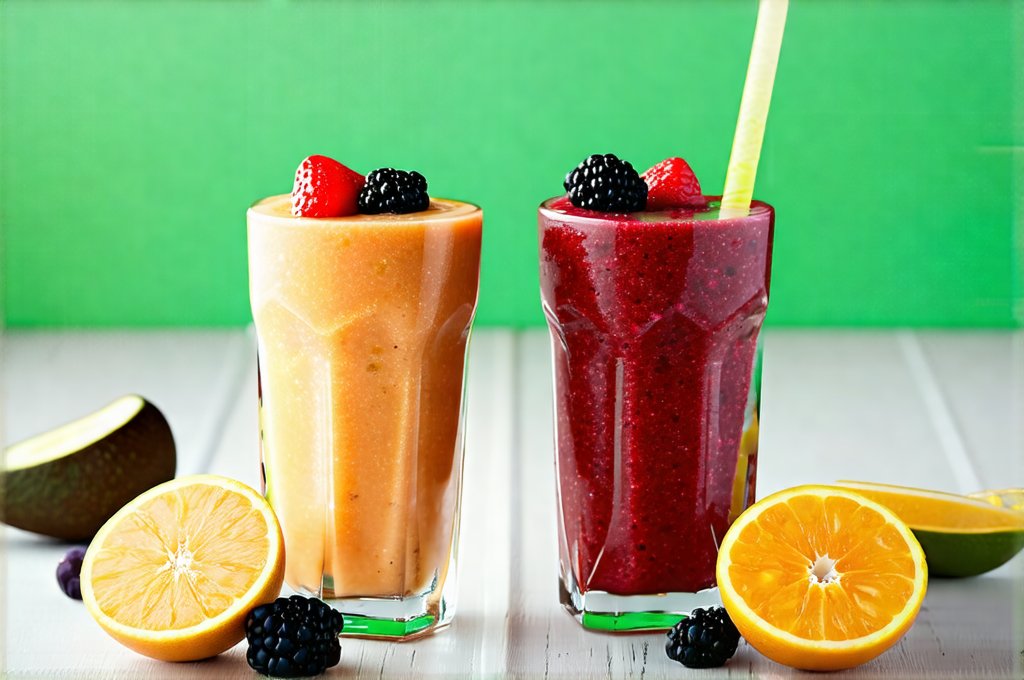Gastroesophageal reflux disease (GERD) is a surprisingly common condition affecting millions worldwide, characterized by persistent heartburn, regurgitation, and discomfort after eating. Managing GERD often requires dietary adjustments, and for many, this means eliminating trigger foods that exacerbate symptoms. While the typical advice focuses on avoiding acidic fruits like citrus, dairy can also be problematic due to its potential to relax the lower esophageal sphincter—the muscle preventing stomach acid from flowing back up into the esophagus. This leaves individuals seeking satisfying and nourishing options that won’t worsen their GERD. Thankfully, a world of flavor and nutrition remains accessible through carefully crafted smoothies, tailored specifically for those avoiding both citrus and dairy.
The challenge isn’t about restriction; it’s about creative substitution. Smoothies offer an ideal vehicle for nutrient-dense ingredients while remaining gentle on the digestive system. Many people with GERD find relief by incorporating foods known to soothe the esophagus or promote digestion. This means leaning into options like bananas, melons (excluding citrusy varieties), leafy greens, and plant-based milks such as oat or almond milk. The key is understanding how different ingredients interact within your body and finding combinations that offer both enjoyment and symptom management. It’s also important to remember that individual tolerances vary greatly – what works for one person may not work for another, so mindful experimentation is encouraged. Understanding how blending fruits with dairy impacts digestion can be a good starting point.
Understanding GERD & Smoothie Considerations
GERD occurs when stomach acid frequently flows back into the esophagus. Several factors can contribute to this, including diet, lifestyle, and anatomical variations. Certain foods are more likely to trigger reflux because they either increase acid production or relax the lower esophageal sphincter (LES). Citrus fruits are notorious for their acidity, while dairy products, although not acidic themselves, can sometimes worsen symptoms by relaxing the LES, allowing stomach acid to creep upwards. The goal with GERD-friendly smoothies isn’t simply exclusion; it’s about building a beverage that actively supports digestive health and minimizes irritation. This involves prioritizing ingredients known for their soothing properties and avoiding those known to aggravate reflux. If you suspect dairy products are a trigger, exploring alternatives is key.
Smoothie composition plays a significant role in its impact on GERD. For example, excessive fiber, while generally healthy, can sometimes lead to bloating and discomfort if consumed rapidly. Similarly, high-fat content can slow digestion and increase the risk of reflux. Therefore, balance is crucial. A well-constructed smoothie will blend ingredients that are easily digestible, low in fat, and rich in nutrients without overwhelming the digestive system. Furthermore, portion size matters – consuming too much liquid at once can put pressure on the LES, increasing the likelihood of acid reflux. It’s important to eat without feeling heavy or bloated when managing GERD.
The choice of liquid base is also vital. Oat milk and almond milk are excellent alternatives to dairy, offering creamy textures and milder flavors without the potential for LES relaxation. Coconut water provides hydration and electrolytes, while plant-based yogurts (made from coconut or almond) can add creaminess and probiotics—beneficial bacteria that support gut health. Experimenting with different bases allows you to find what suits your taste preferences and digestive needs best.
Building the Perfect GERD-Friendly Smoothie
Creating a delicious and soothing smoothie requires a thoughtful approach to ingredient selection. Start with a base of approximately 1 cup of plant-based milk (oat, almond, or coconut water). Then, add about half a frozen banana for sweetness and creaminess – bananas are naturally alkaline and can help neutralize stomach acid. Incorporate a handful of leafy greens like spinach or kale for added nutrients; these tend to be well-tolerated by most individuals with GERD. A small amount (1/4 cup) of melon, such as honeydew or cantaloupe, provides sweetness and hydration without the acidity of citrus fruits. Finally, consider adding a tablespoon of ground flaxseed or chia seeds for fiber and omega-3 fatty acids, which can support digestive health. If you are recovering from a stomach virus, introduce these ingredients gradually.
Blending is key to achieving the desired texture and consistency. Start with low speed and gradually increase until all ingredients are fully incorporated. Avoid over-blending, as this can create excessive air pockets that may contribute to bloating. Taste test and adjust sweetness or thickness as needed. A dash of cinnamon or nutmeg can add flavor without exacerbating GERD symptoms. Remember, these are just starting points – feel free to experiment with different combinations to find what works best for you!
Optimizing Smoothies for Digestive Comfort
- Fiber Intake: While beneficial, excessive fiber can sometimes worsen bloating. Start with small amounts and gradually increase as tolerated.
- Fat Content: Keep fat content low by avoiding ingredients like avocado or nut butters in large quantities. A teaspoon of flaxseed oil is generally well-tolerated.
- Blending Technique: Blend thoroughly to ensure easy digestion, but avoid over-blending which can introduce excess air.
- Portion Control: Stick to reasonable portion sizes (8-12 ounces) to prevent pressure on the lower esophageal sphincter.
Ingredient Spotlight: Soothing Choices
Consider these ingredients for their potential benefits in managing GERD symptoms:
- Bananas: Alkaline and easy to digest, bananas can help neutralize stomach acid.
- Melons (Honeydew, Cantaloupe): Provide sweetness and hydration without the acidity of citrus fruits.
- Leafy Greens (Spinach, Kale): Rich in nutrients and generally well-tolerated.
- Oat Milk: A creamy and gentle alternative to dairy milk.
- Almond Milk: Another excellent dairy-free option with a mild flavor.
- Ginger (Small Amount): Known for its anti-inflammatory properties and can aid digestion, but use sparingly as some individuals may find it irritating.
Beyond the Basics: Flavor Enhancers & Add-Ins
To elevate your GERD-friendly smoothies, explore these options:
- Spices: Cinnamon, nutmeg, and turmeric add flavor without exacerbating symptoms.
- Seeds: Chia seeds and flaxseeds provide fiber and omega-3 fatty acids.
- Vanilla Extract (Pure): A small amount can enhance sweetness without adding sugar.
- Plant-Based Yogurt (Coconut or Almond): Adds creaminess and probiotics for gut health.
- Protein Powder (Pea, Brown Rice): Choose a plant-based protein powder that is easily digestible and doesn’t contain artificial sweeteners or additives.
It’s crucial to remember that managing GERD is a personalized journey. Experimentation and mindful observation are key to discovering what works best for your individual needs. This guide provides a foundation for creating delicious and soothing smoothies, but ultimately, the most effective approach involves listening to your body and adjusting ingredients accordingly. Taking time for rest without feeling broken can also contribute to overall wellbeing when living with GERD. If anxiety around digestion is a concern, managing poop anxiety may be helpful too. And remember, incorporating high-fiber meal plans can support overall digestive health.


















